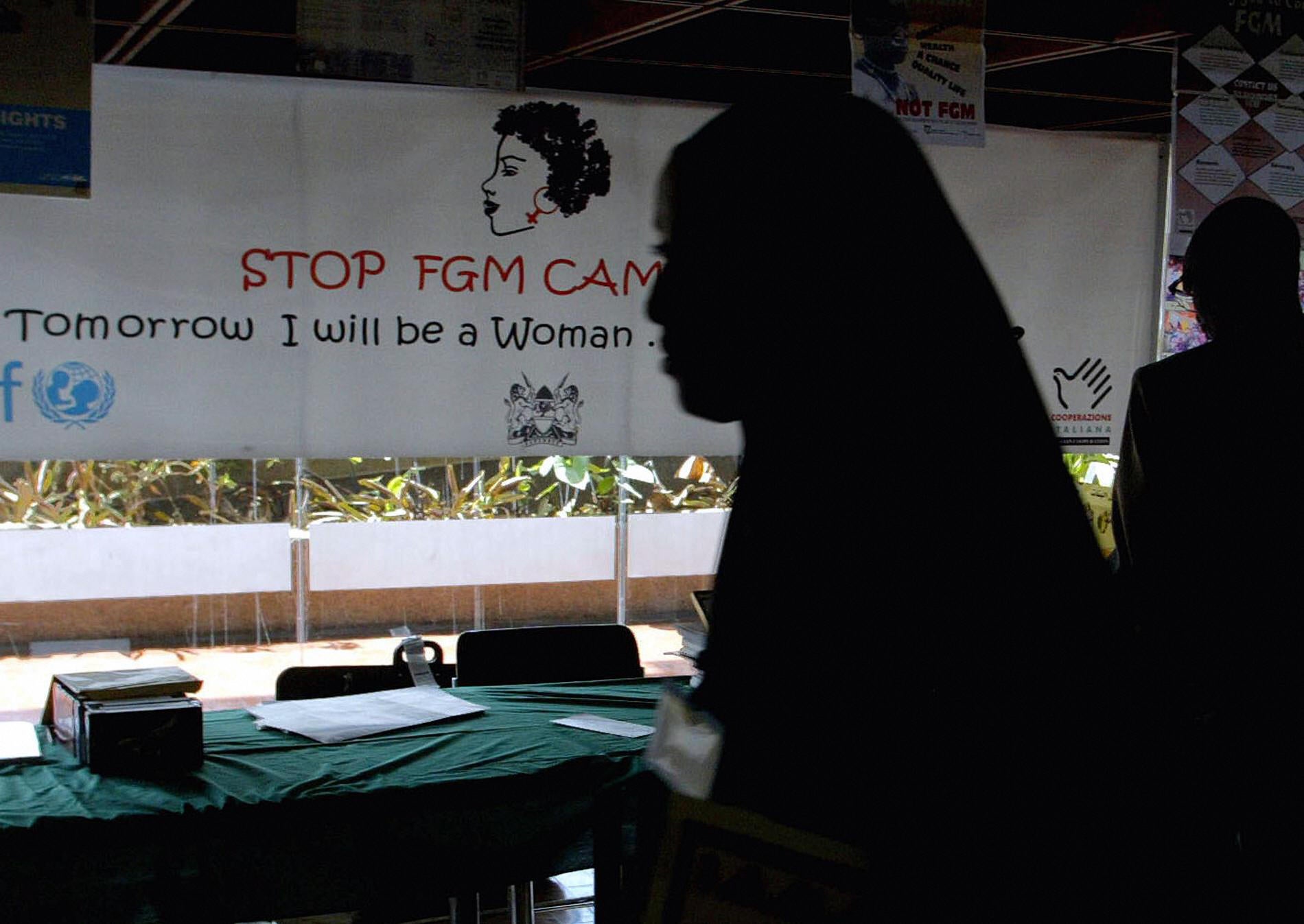As an FGM survivor, I am proof that there can still be hope in the future
On International Day of Zero Tolerance for Female Genital Mutilation, I am proud of who I am. I am strong. I am the mother of a daughter who will never go through what I went through


I am six years old when I’m cut. It’s a normal custom, a tradition, in my homeland of Somalia. Every little girl in the village knows there is a secret; they are told that something “special” is going to happen to them one day. They don’t know what it is or when it will happen, simply that it will.
I remember the day clearly. I am woken early in the morning by my uncle. There are a lot of people around – village women and men, children. The women are cooking and singing, the children playing. I’m given sweets and presents. I remember thinking it’s not my birthday, why is everybody celebrating? The sweets are delicious. I am smiling, I am happy.
I am held down by my uncle and aunts. I watch as an old lady enters the room. I don’t recognise her. She grins, and then that “special” thing happens. Female Genital Mutilation.
No pain killers. No numbing cream. My mouth is covered by an aunt’s hand to silence my screams. I am cut, with a scalpel. My skin is pulled tight. I am sewn back together with a needle and thread just like a piece of fabric. It’s the most terrifying and painful thing but I must not complain; I have to be perfect for my husband on my wedding night.
At the end of the brutal ritual, I am presented with a necklace. A beautiful bauble to celebrate my becoming a woman. I am six years old.
I look back at that little girl, and my heart aches. I’m angry. No one should have the right to do that to another human being. No one should tell you that if you don’t go through FGM, nobody will marry you, that you will be bullied by your friends, you will bring shame to your family and be scorned by your community.
I was lucky. At 10 years old, I was able to flee Somalia and join my mother here in the UK. I never talked about my experience, not with anyone. My sisters were born in this country so they had no idea of what I had been through as a little girl. My mother never spoke to me about it either. To her, it was a normal thing to happen to girls in our homeland. She had experienced it, so had her sisters and her friends. It was a tradition – part of life, not to be spoken about, not to be challenged.
I knew it wasn’t right but it was only when I came to the UK that I learned that the practice was illegal in this country, there is a law against it and the punishment is jail. When I discovered this, I can’t describe the relief I felt. To know that you are not alone in thinking this shouldn’t happen to little girls is comforting. It gives you hope that maybe one day it will stop.
Growing up in a country where girls are not considered worthy enough to educate, I never thought I would have the opportunity to go to school, let alone university. I didn’t have dreams, I didn’t know what was possible.
When I came to this country that changed. I saw my friends wearing different clothes, colourful and flamboyant, while I dressed in the fashion of my mother and grandmother – long black dresses. I wanted to step away from my past and embrace my future, and I instantly knew I wanted to do this through fashion.
It was while studying fashion at the University of East London that I finally found my voice. I started a project, designing female sports and leisurewear, using football kit fabric. Football is the biggest influence in my homeland. Almost every boy and girl, whether they have a little bit of money or they are poor, wears a football shirt. Even if it’s ripped up or coming apart at the seams, they will tie it together so they can continue to wear it.
It’s a time in a girl’s life when she is treated equally. There are no rules. She can dress how she likes. I wanted to reflect on a small window in time when a girl’s life in Somalia is good.
To keep up to speed with all the latest opinions and comment sign up to our free weekly Voices Dispatches newsletter by clicking here
As I worked on the designs, I became more influenced by my experience of FGM. I couldn’t ignore it. It had control over me. I began to open up to my classmates, talk about my project to them. At first, they were uncomfortable and didn’t know how to approach me. They didn’t know much about FGM so when I started presenting my work and telling them about the practice, they were horrified that in today’s world this still exists. It was the beginning of a healing process for me.
My collection tells my story. Every garment, every design features the word “Jirkeeyga” which means “my body” in Somali. I want all women to feel empowered when they wear my clothes. I want them to be proud of who they are: “It’s my body, it’s not your body. You have no control; you cannot make a decision because my body belongs to me.”
Today, on International Day of Zero Tolerance for Female Genital Mutilation, I am proud of who I am. I am strong. I am a mother of a daughter now. My two-year-old will never go through what I went through.
I am still healing but I can tell her that in life, we go through things that are not always of our own making – it’s how we deal with these things that makes us the people we are. We can revisit our pain. We can conquer it. We can be a voice of change.
Yasmin Ibrahim is a modesty-focused fashion designer
Join our commenting forum
Join thought-provoking conversations, follow other Independent readers and see their replies
Comments